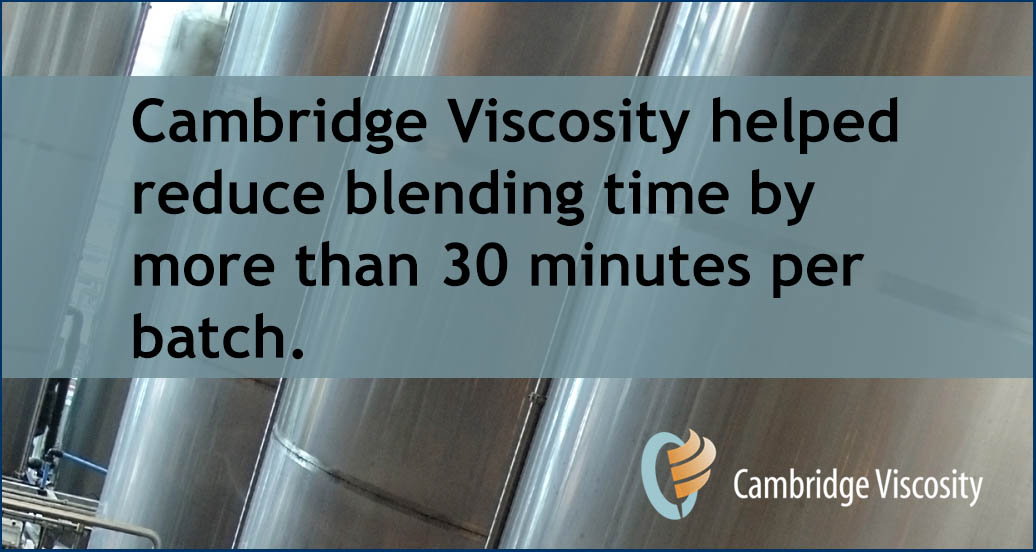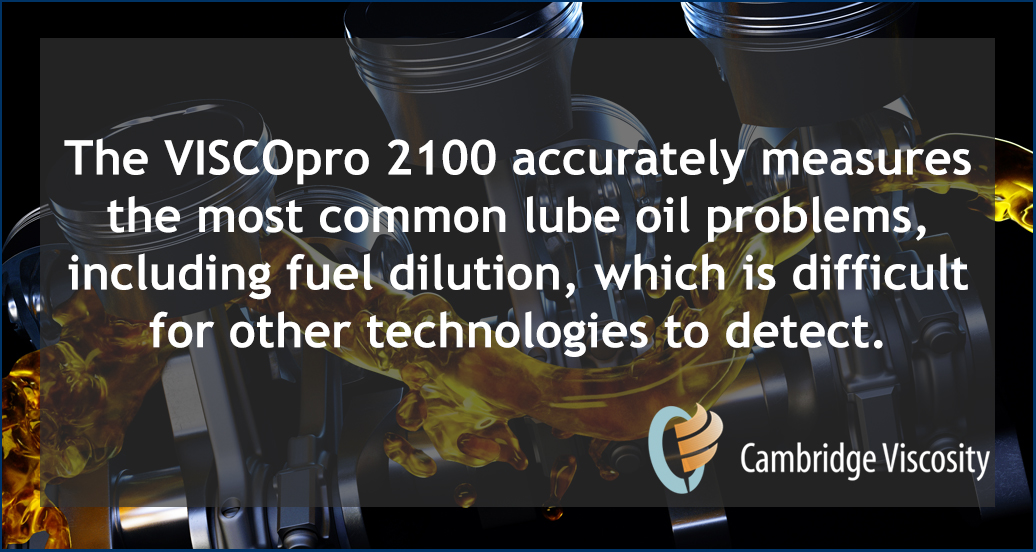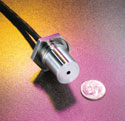A PVT (Pressure/Viscosity/Temperature) analysis is required several oil applications. PVT measurement provides oil companies a deep understanding of a fluid’s characteristics, so they can make better, more informed decisions. Variability in oil is normal, and drillers need to be able to assess the quality of oil, as well as the best method for extraction, production, and processing of the heavy crude. PVT measurement is also used in bearing analysis, to assess lube oil under bearing conditions.
CVI ViscoLab PVT+ viscometer is designed for challenging applications
Aug 27, 2021 3:33:36 PM / by Patrick Riley posted in PVT, lube oil viscosity, high temperature viscometer, viscosity measuring solution, Exploration, high pressure viscometer
Reduce blending time for a lubrication product with viscosity analysis
Apr 7, 2021 3:54:45 PM / by Patrick Riley posted in lube oil viscosity, viscosity measuring solution, blending
A refinery was interested in increasing the production of their lubrication products by reducing the time it takes to formulate the products. The facility had several blending tanks in varying sizes, which were used for blending multiple products. Their operating procedures required that they test samples from the top, middle, and bottom of the tanks to ensure the samples were homogenous. Because they didn’t know the exact blending time of the batches, their procedures required that they wait for an hour or more to be sure that full blending had occurred. This effort was time-intensive and could add 45 minutes or more to a batch. If the mixing wasn’t complete and the tests needed to be performed again, even more time would be added to the process.
Monitor the viscosity of lube oil to reduce failures in engines
Mar 16, 2021 9:43:04 AM / by Patrick Riley posted in lube oil viscosity, viscosity control, viscosity management, 301 sensor
When it comes to rotating equipment, it’s a question of when—not if—a failure will occur. Engine breakdowns, for example, are often caused when the bearings in rotating parts fail. What does this have to do with viscosity, you may be wondering. Faulty bearings can generally be traced to one of three issues: 1) Severe service conditions, 2) improper handling or installation, or 3) poor lubrication.
Lube Oil Viscosity Testing For Optimal Compressor Performance
Jul 18, 2018 12:00:00 AM / by Admin posted in VISCOpro2000, process viscometers, lube oil, lube oil viscosity, 571 sensor, compressor viscosity
Boston—Danfoss Compressors is using a Cambridge Viscosity small sample viscometer to test refrigerant and oil mixtures at their Tianjin, China factory.
The viscometer includes the Cambridge VISCOpro2000 electronics and SPL 571 lube oil viscometer sensor with multiple piston ranges to test compressor performance using new combinations of lube oils and refrigerants. The lower the viscosity of this mixture, the more efficient the compressor is. However, if viscosity is too low, the compressor can wear out prematurely. By achieving the optimal balance of efficiency and lubricity, the company can improve compressor performance while using more environmentally friendly refrigerants.
Danfoss engineers cite the viscometers’ ease-of-use, robust functionality and high degree of accuracy among the chief reasons for their use. The VISCOpro2000 enables users to monitor critical fluid processes and capture real-time data. The addition of the 571 sensor—used extensively for compressor, used oil analysis, on-engine and hydraulic fluid applications—provides for installations where form factor and small sample volume are important. “Danfoss was restricted in the amount of area they had, and Cambridge’s miniature lube oil viscometer is the perfect choice when limited to tight spaces,” explains Cambridge Viscosity China Agent Miker Wang of Suzhou TAIEN.
Cambridge’s viscosity management technology is based upon a simple and reliable electromagnetic concept. Two coils move the piston back and forth magnetically at a constant force. Proprietary circuitry analyzes the piston’s two-way travel time to measure absolute viscosity. A built-in temperature detector (RTD) senses the actual temperature in the sampling chamber. Constant in and out motion keeps samples fresh, mechanically scrubs the sampling area and provides excellent viscosity tracking.

About Cambridge Viscosity
Cambridge Viscosity, a leader in small sample viscometer systems for laboratory and process environments, designs automated viscometers used worldwide in petroleum, exploration and refining applications to ensure accurate viscosity in both lab and operations. Cambridge’s worldwide reach is important for providing application engineering support and service wherever and whenever needed.
Cambridge Viscosity’s sensors and viscometer systems conform to ASTM, DIN, JIS and ISO standards, with a range of models designed to meet specific industry and application needs.
Chevron Updates Older Viscosity Systems for Better Product Reliability
Feb 6, 2017 9:00:00 AM / by Admin posted in process viscometers, lube oil, lube oil viscosity, refining
FOR IMMEDIATE RELEASE
Online Viscometer Ideal for Gas Compressor Lubrication Oil
Jan 30, 2017 10:10:00 AM / by Admin posted in process viscometers, lube oil, 392 sensor, lube oil viscosity, oil analysis, compressor viscosity
FOR IMMEDIATE RELEASE
NTPC India Uses Small Sample Viscometer to Monitor Lube Oils
Jan 26, 2017 2:28:00 PM / by Admin posted in oil viscosity, lube oil viscosity, small sample viscometer, oil analysis, VISCOlab4000, India, Asia Pacific
NTPC, India’s largest thermal power generation company, has purchased a Cambridge Viscosity small sample viscometer, VISCOlab 4000, monitor lubrication oils. NTPC uses large quantities of a variety of oils—lube, fuel, diesel, transformer and gear oil— to operate machinery in their plant. The company will use the laboratory viscometer to verify the quality of inward petroleum material.









